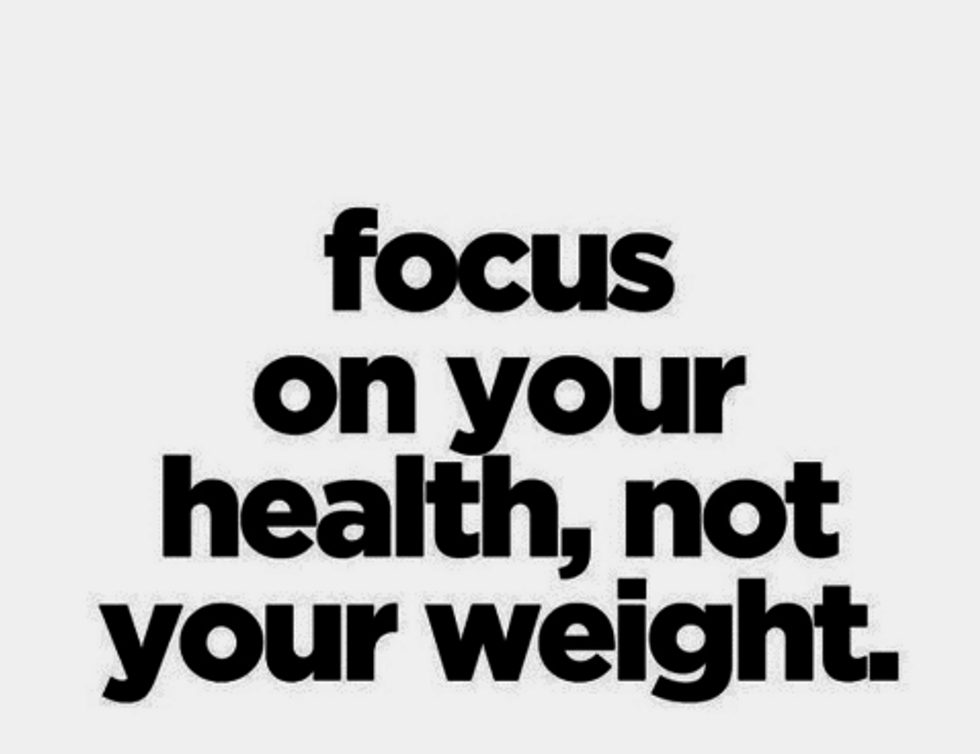The Freshman 15 Isn't The Worst Thing That Can Happen, IF You're Listening To Your Body
Getting accepted to a university and moving into the next chapter of life is stressful enough — let's be kind to ourselves and our bodies.
When I was an 18-year-old fresh out of high school, I had already heard many horror stories about the infamous freshman-15. A few weeks into the first semester and perhaps you realize your jeans are a lot snugger than they were before, then maybe one day they don't fit at all. It's one of the main things new students dread when packing up to move into their new home away from home, on top of worrying about finding new friends and being away from family. It seems logical to gain some weight in the middle of a stressful situation: our mealtimes shift, our food choices are expanded, our sleep schedules are thrown off. In most cases, I would say that some weight gain is normal and nothing to worry about, but in some cases, the freshman 15 can be more serious than we realize.
Before drawing any conclusions it's important to discover where the weight gain is coming from.
It's no secret that drinking happens at college, underage or otherwise. Drug use can also come up in social situations. According to the NHS website studies have shown that drinking alcohol "switches the brain into starvation mode, increasing hunger and appetite." With that little factoid, it's easy to see how even social drinking can lead to weight gain, so it might be time to cut back.
As for drug use, it's no secret that the active ingredient in marijuana – THC – can release ghrelin, the hunger-stimulating hormone. If you live somewhere it's legal for recreational use and you feel it's causing too many cases of the munchies, reconsider if smoking is right for you.
As high schoolers, many of us had regimented meals at home and at school. Lunch came at the same time every day, and dinnertime was decided by our parents if they were home, regardless of whether we were hungry. While it's nice to have a consistent schedule, ignoring the body's hunger cues has consequences. At college there are no holds barred when it comes to deciding your schedule but eating with relatively no impediments can be a blessing and a curse. If your hunger cues never lined up with mealtimes before coming to college, then it's great to have the freedom to honor your hunger, which can curb overeating. On the other hand, you might find that you're unable to contain yourself when choosing mealtimes and wind up snacking 24/7 or making too many trips to the dining hall.
Loss of structure isn't only limited to food though, as throwing off your sleep schedule can be detrimental to your health both mentally and physically. According to WebMD, sleep deprivation can make us act like we're drunk, affecting the frontal lobe of the brain which is responsible for decision-making. Essentially, if you're not able to get a full night of sleep, it can be harder to withstand the temptation to dig into junk food.
This doesn't mean that weight gain is a bad thing.
Sometimes weight gain means overcoming an illness or eating disorder, or radical self-acceptance, other times it's just a part of life's natural ebb and flow. Sometimes we weigh more, sometimes we weigh less – in the end, the number on the scale is irrelevant. The unhealthy habits associated with the freshman-15 as well as learning to listen to what your body needs are vastly more important takeaways than watching the scale go up or down.



































